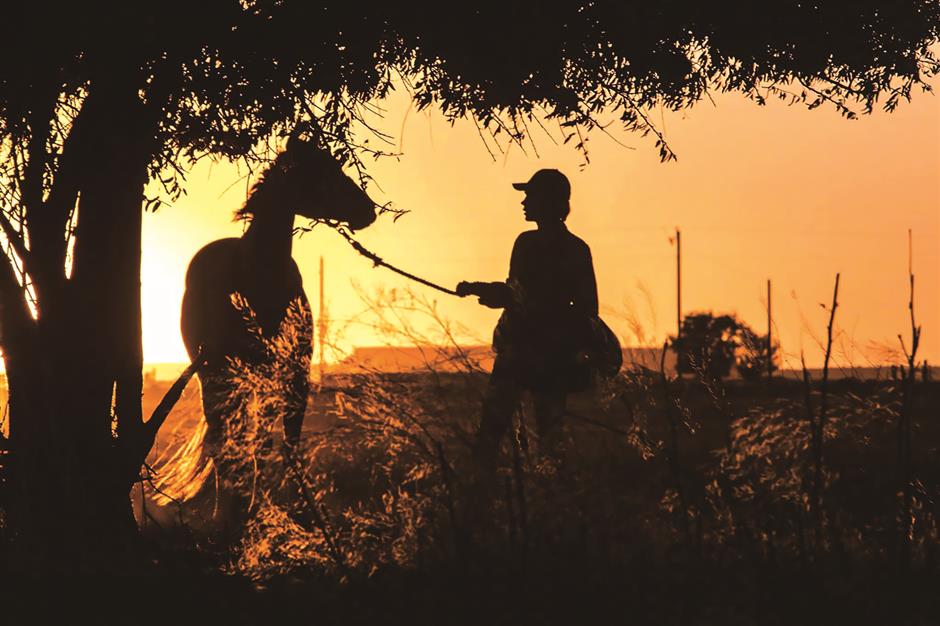Lean on Pete: a bleak coming-of-age tale

Charlie Plummer stars Charley Thompson in the film “Lean on Pete.” His Charley is a meek, sheepish kid yearning for a little stability.
There is painfully little love, except for the warm and compassionate filmmaking itself, in Andrew Haigh’s tender and heartbreaking coming-of-age drama “Lean on Pete.”
In his first American film, Haigh, the British director of “45 Years” and “Weekend,” proves every bit as adept at burrowing into fragile human intimacies across a vast Western landscape as he showed in his earlier, more cloistered dramas.
Fifteen-year-old Charley Thompson (Charlie Plummer) lives with his father (Travis Fimmel), a jovial blue-collar guy who bounces from job to job and girlfriend to girlfriend. Having recently arrived from Spokane, Charley’s days are idle and lonely, with little to no food in the house. Plummer gives a crushingly sweet breakthrough performance. His Charley is a meek, sheepish kid yearning for a little stability. When a woman his dad brings home buys groceries and makes breakfast, he hopefully asks his father if she might stick around.
Charley notices a racetrack when out running one day and is drawn to it. He meets the ethically shabby horse owner Del (Steve Buscemi), who gives him a few bucks for an odd job.
Charley immediately takes to Del’s oldest, least flashy but sturdy horse: Lean on Pete, a five-year-old quarterhorse. Del and his favorite jockey, Bonnie (Chloe Sevigny), caution him about growing too attached. Pete won’t last much longer; Del is trying to squeeze a few more races out of him before selling him. It’s a warning that could double for “Lean on Pete.”
Haigh’s film might appear a mushy, Disney-style tale of boy-meet-horse, but “Lean on Pete,” based on the novel by Willy Vlautin, is about a crueler world without room for sentimentality. Just as Charley is settling into life at the track, a violent tragedy upsets his existence.
Charley steals Pete and sets out on a woeful odyssey through a seldom-seen America. Everyone Charley encounters is scrapping by, many of them compromising themselves for the little security they can manage. The portrait of America in “Lean on Pete” grows harsh. But it’s less Haigh’s view of American society that makes the heartfelt “Lean on Pete” stay with you. It’s Plummer’s wounded, achingly alone Charley, striving across a darkening land, desperately.















